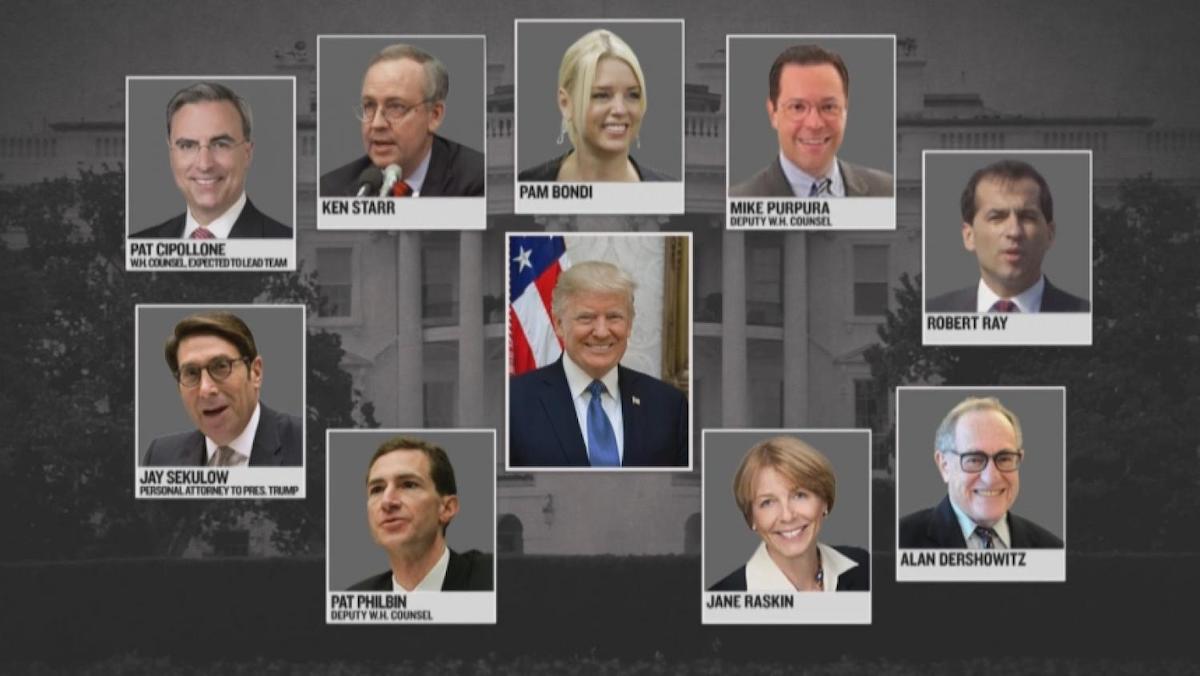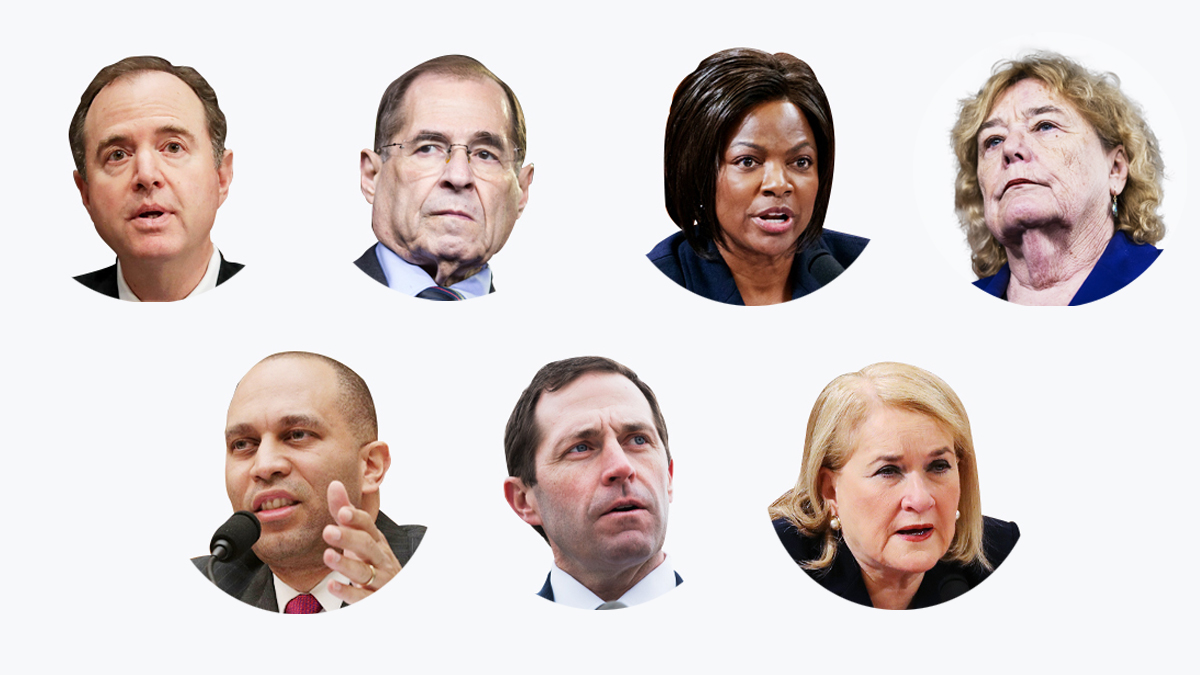President Donald Trump's lawyers opened his Senate impeachment defense Saturday with the false assertion that Democrats tried to shut the president's team out of the congressional inquiry that preceded the charges. Actually, Democrats invited Trump to participate and he declined.
Throughout their presentation, Trump's lawyers accused the Democrats on the prosecution team of giving senators selective facts in the episode. Indeed they did — and Trump's lawyers did the same as each side made its best case for and against Trump's removal from office.
A looks at some of the statements from Trump's defense:
TRUMP lawyer PAT CIPOLLONE: “Why would you lock everybody out of it from the president's side? ... It’s evidence they themselves don’t believe in the facts of their case.”
Get top local stories in Connecticut delivered to you every morning. Sign up for NBC Connecticut's News Headlines newsletter.
THE FACTS: Trump wasn't locked out. He rejected an invitation from the House Judiciary Committee to participate in the hearings that ultimately produced the articles of impeachment.
On Nov. 29, the committee's chairman, Rep. Jerrold Nadler, D-N.Y., sent a letter to Trump “to determine if your counsel will seek to exercise the special privileges set forth in the Judiciary Committee's Impeachment Procedures ... and participate in the upcoming impeachment proceedings. In particular, please provide the Committee with notice of whether your counsel intends to participate, specifying which of the privileges your counsel seeks to exercise. ...”
On Dec. 6, Cipollone signaled Trump would not participate, telling Nadler in a letter that "House Democrats have wasted enough of America's time with this charade." Trump and his team did not take part.
The first round of hearings, by the House Intelligence Committee, was not opened to participation by Trump's team. Those hearings resembled the investigative phase of criminal cases, when the subject of the investigation is ordinarily not brought in. Trump complained about not being invited, then said no when the next panel invited him.
___
CIPOLLONE: Democrats “hid evidence” from the Senate impeachment trial in their opening arguments.
THE FACTS: This is an iffy definition of hiding something. Cipollone spoke about the July 25 phone call between Trump and Ukraine's president, which is at the heart of the impeachment case, and cited certain passages that Democrats did not play up or mention in their prosecution argument.
The rough transcript of that conversation is a matter of public record, having been released by the White House, and is far from hidden.
The passages in question were when Trump complained about Germany and other European countries doing nothing to help Ukraine, putting the burden on the United States. For the record, his complaint, which he has voiced many times since, is inaccurate.
European Union institutions have given far more development assistance to Ukraine than the U.S. has provided, and individual countries in Europe as well as Japan and Canada have contributed significantly, too. The U.S. is the primary supplier of military aid.
In the July 25 phone call, after Ukrainian President Volodymyr Zelenskiy said his country wanted more anti-tank missiles from the U.S. to help defend itself against Russia, Trump then and repeatedly pressed him to investigate Joe Biden, Trump's potential 2020 election rival, and Democrats.
Trump held up nearly $400 million in military aid to Ukraine until Congress got wind of the freeze.
___
TRUMP lawyer MIKE PURPURA: "The record that we have to go on today is based entirely on House Democratic facts pre-cleared in a basement bunker."
THE FACTS: That's not true. The case also is based on text messages, emails and other documents provided to the House Intelligence Committee, which had public hearings. Many witnesses testified and Republicans on the committee attended and questioned them, just as Democrats, did.
As for the dark reference to a “basement bunker,” that's a secure facility at the Capitol where, at times, dozens of members of the House, from both parties, attended depositions and meetings.
When Republicans controlled the House before the last elections, the Intelligence Committee held its entire Russia investigation in that “bunker."
___
PURPURA: " The security assistance flowed on Sept. 11 and a presidential meeting took place on Sept. 25 without Ukrainian government announcing any investigations.”
THE FACTS: True, but that was after Trump's pressure campaign on Ukraine for a political “favor” had been exposed. A whistleblower's complaint alleging Trump abused his office had surfaced before that.
The Democrats opened a congressional investigation of the episode only a few days before Trump, on Sept. 11, released the military assistance that Congress had approved early in the year.
It's true Trump and Zelenskiy met Sept. 25. The meeting was in New York on the sidelines of the U.N. General Assembly. It did not carry the prestige of the White House meeting that Zelenskiy wanted and Trump tentatively offered in the July phone call. In that call, Zelenskiy thanked Trump for inviting him not only to the U.S. but “specifically Washington” and Trump said: “Give us a date and we'll work that out.”
Associated Press writers Lisa Mascaro and Mary Clare Jalonick contributed to this report.



